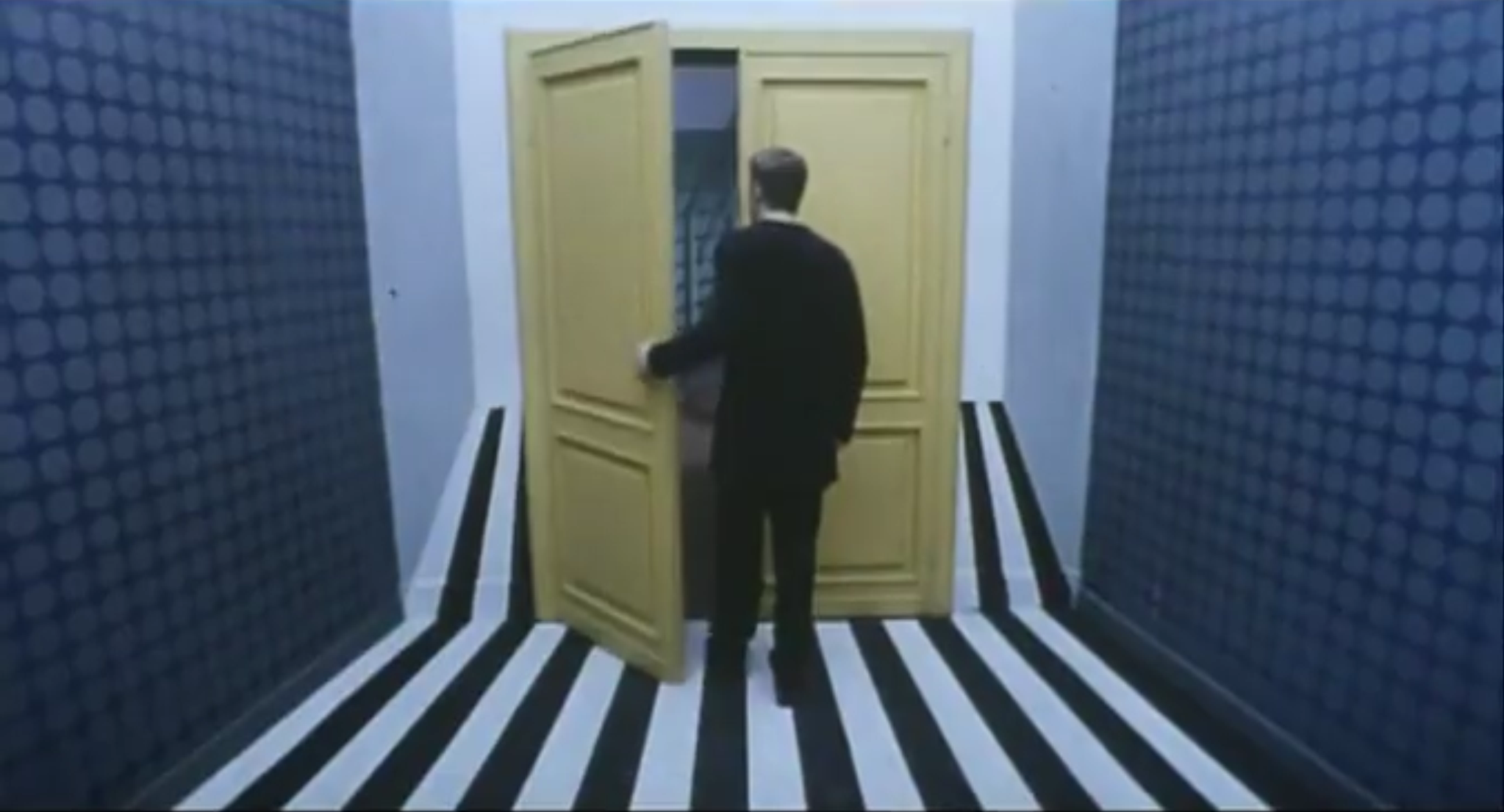
lambertathon:
NiRVANA
kevin sturton
As we all know when it comes to Christopher Lambert, there can be only one. However, writing about every movie in an actor's 30+ year filmography is a big job - too much for one man who's got bills to pay and photos of Ana de Armas to gaze at longingly. So for this installment of the epic Lambertathon, John Cribbs passes the torch to Kevin Sturton, writing his first piece for The Pink Smoke.
We highly recommend you look into Mr. Sturton's blog. He's our new favorite scunner & his taste is impeccable - just check out his recent piece on Timothy Dalton in The Rocketeer for the "Villians Blogathon." But now: it's time for a new kind of magic. Nothing in the world has prepared you for this. Kevin Sturton is building a fortress for the ultimate takeover... of your mind!
This is his shared but still personal...
LAMBERTATHON.
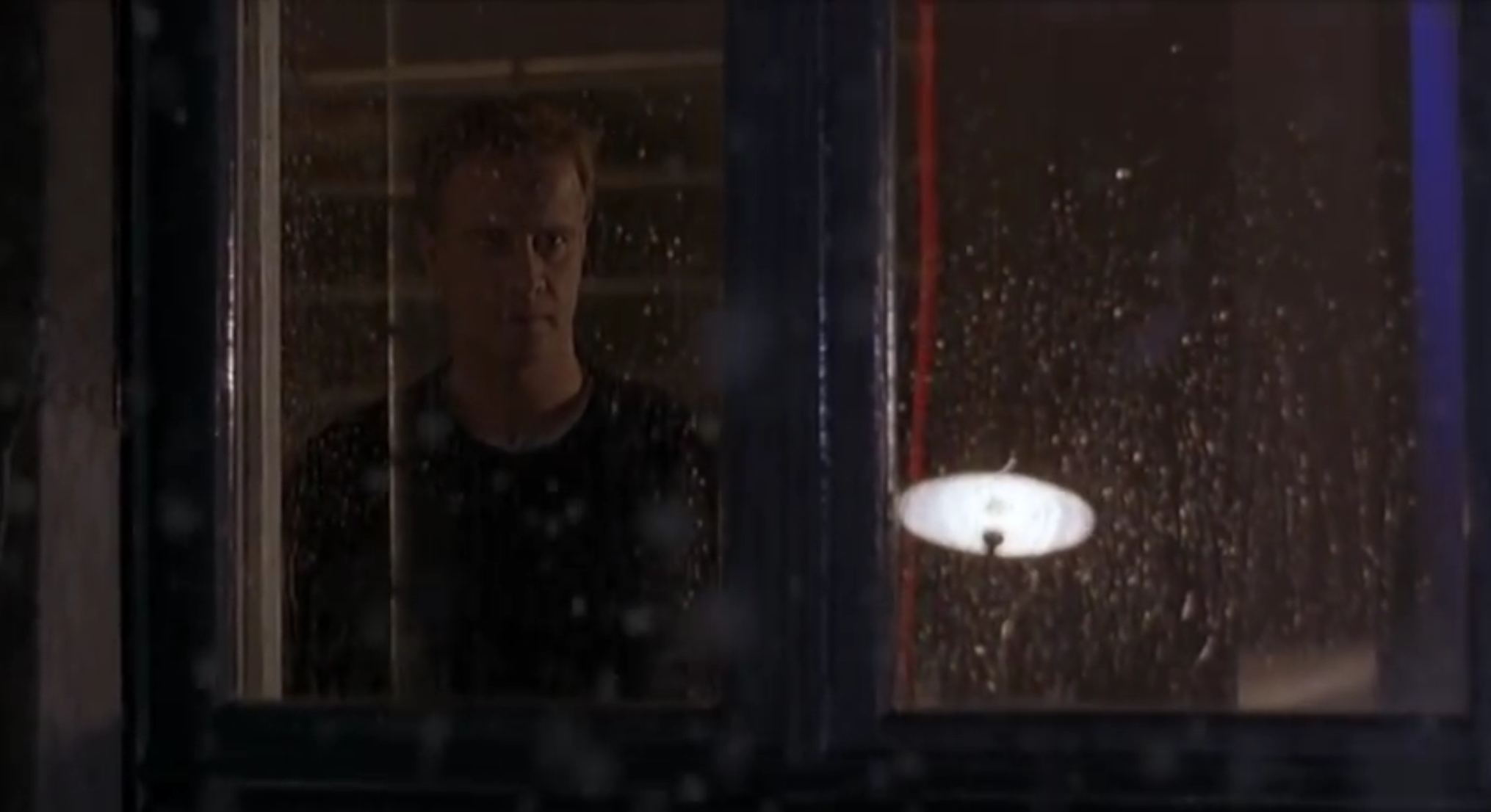
NiRVANA
gabriele salvatores, 1997.
Back when I was at school in the 80s’ my mates developed an unusual habit of adopting a bizarre Franco-Scots accent and saying weird stuff like “Aye Blossom, the way you like it,” or “I’ll bloody well walk out of here!” These references were lost on me. As a latchkey kid from a single-parent family I knew better than to ask for something as expensive as a video player. Not that this bothered me, Sport was my main interest as a kid and I didn’t really develop a passion for movies until later. Eventually I caught up and saw Russell Mulcahy’s cult classic Highlander (86) which served as a gateway drug to the eclectic career of its leading man Christopher Lambert.
Though Highlander remains a personal favourite it’s his wired turn in Luc Besson’s Subway (85) which turned me into a Lambert completist. As Fred, the impulsive birthday-loving safecracker hiding out in the Paris Metro from gangsters he’s out of this world. Lambert is just as compelling in the bizarre satire I Love You (86) as a womaniser who becomes obsessed with a key-ring which says “I love you” every time he whistles. Here’s what the film’s director Marco Ferreri said about Lambert in the documentary Marco Ferreri: The Man Who Came From the Future (2007, Marco Canale).
“He has tempos, expressions, movements, ways of moving his body and hands that he’s not aware of but are harmonic. They’re determining.”
Lambert’s acting ability is regularly called into question by critics but I agree with Ferreri. If a filmmaker is capable of channeling Lambert’s other-wordly screen presence, he becomes a very interesting actor to watch. Which brings us to Gabriele Salvatore’s Nirvana, a cyberpunk thriller starring Lambert as a reclusive games designer whose latest creation is infected by a virus causing its protagonist to become sentient.
At first glance Nirvana looks like the kind of low budget straight to video/DVD genre movie Lambert tended to headline the late 90s’ and early 00s.’ Director Gabriel Salvatores has a decent pedigree though having won an Oscar for his charming WWII comedy Mediterraneo (91), directed the acclaimed horror film I’m Not Scared (2005), the wonderfully titled thriller Quo Vadis Baby? (2005), and the gangster movie Siberian Express (2013) which allowed John Malkovich to reprise his Teddy KGB accent from Rounders (99, John Dahl).
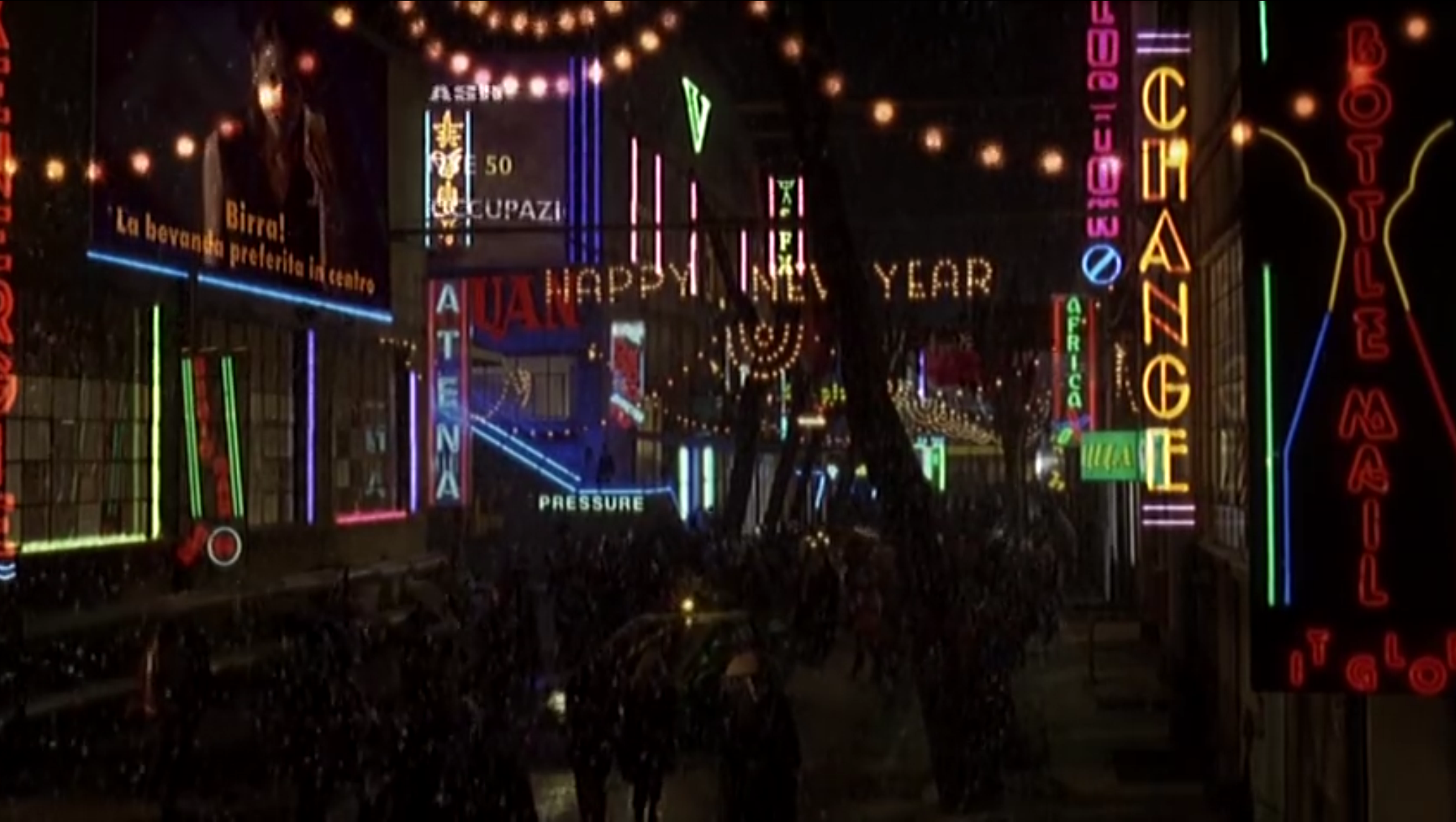
Lambert almost starred in an adaptation of cyber-punk author William Gibson’s Johnny Mnemonic (95, Robert Longo) a couple of years earlier and both films share many of the concerns present in 80s’/90s’ science-fiction. Dystopian high-tech futures run by powerful multinational companies, rogue hackers, and the blurring of lines between reality and the virtual world. Stylistically Blade Runner (82, Ridley Scott) is clearly an influence on the look of the film with its permanently dark sky and neon cityscape.
Like Scott’s movie Nirvana opens with a close-up of a human eye. We’re watching a blurry video message from Jimi’s ex Lisa (Emmanuelle Seigner) as she explains her reasons for leaving him which are frustratingly vague. Their relationship broke down, but neither of them seem to know why. “Love is love and that is that” Lisa says with all the inscrutability of a woman being played by a beautiful French actress.
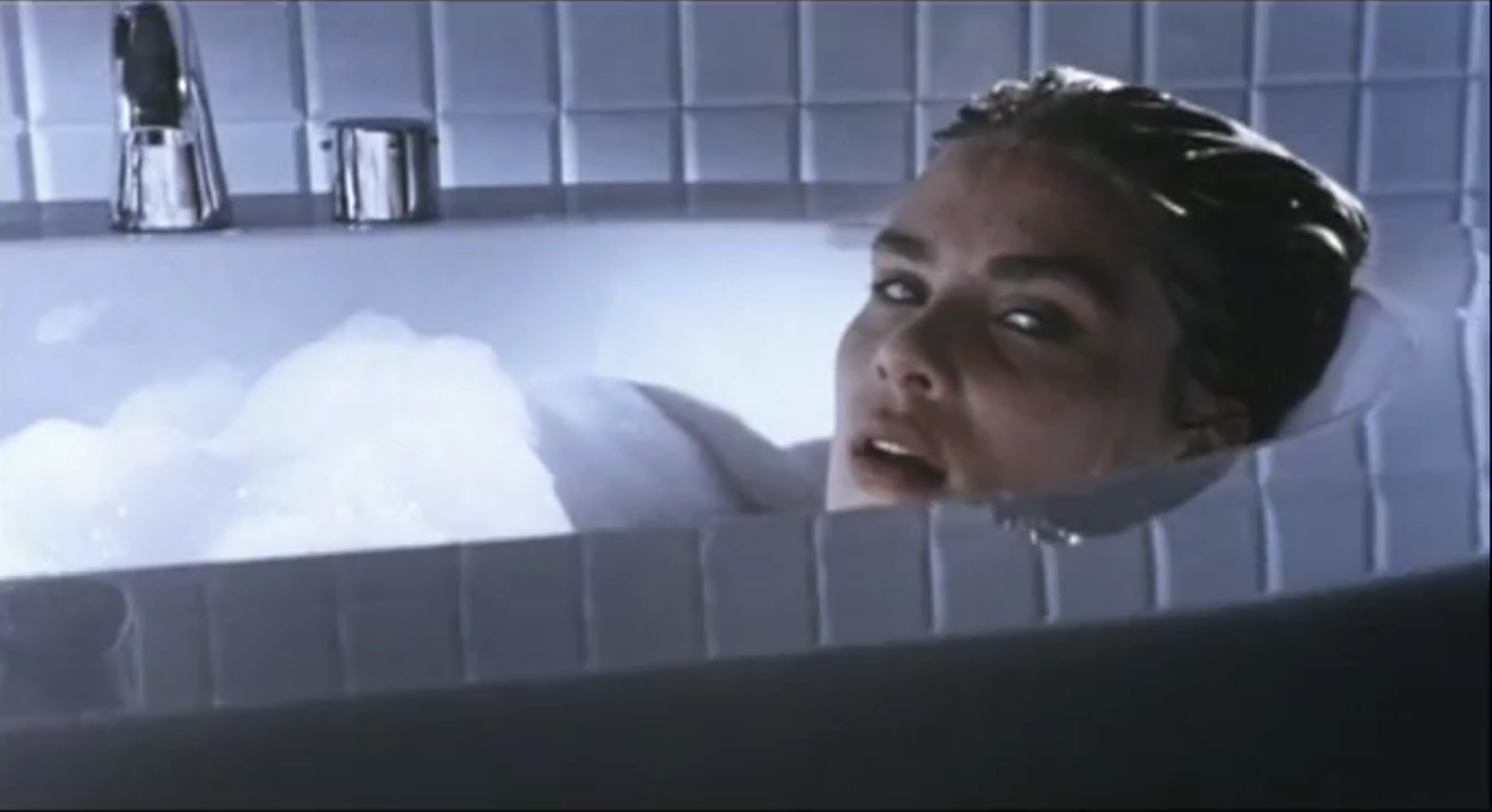
Jimi’s only contact with the outside world is the taxi driver who doubles as his drugs courier and supplies him with a liquid narcotic he fires up his nose in a vial which looks like a genie’s lamp. There’s a Siri type computer system programmed to cater for his needs but Jimi tells it to “fuck off” when it becomes overly motherly.
Jimi’s game features a detective called Solo (Diego Abatantuono) whose latest case has taken him to the door of a woman he met in a nightclub. At that point he’s blown away by an extra who seems to have escaped from a Mad Max movie. After he respawns he relives the same moment but has an overwhelming feeling of déjà vu. When his killer returns he knows what to do this time. Gradually he is becoming self-aware and has a feeling of being watched. When Solo breaks the fourth wall between player and game it’s a difficult scene for both actors to play but Lambert handles it beautifully by picking up his drug vial and checking he’s not taken too much.
Lisa’s appearances become a refrain recurring throughout the film reminding Jimi of her absence but also of his guilt at being unable to help her cope with her depression. They mirror his exchanges with Solo in which his creation discusses his existential problems and his longing for death. This time Jimi will listen to Solo and try to help. Though he agrees to delete Nirvana the game belongs to the Yokohama Star Corporation though and Jimi will have to find a way into their system.
If there is a weakness to Nirvana it’s that the game-world feels more like a 90s’ point and click PC game and Abatantuono seems to have modelled his hairstyle and accompanying moustache on porn star Ron Jeremy. The kung-fu dubbing of the supporting players in the English language version doesn’t do his performance any favours either.
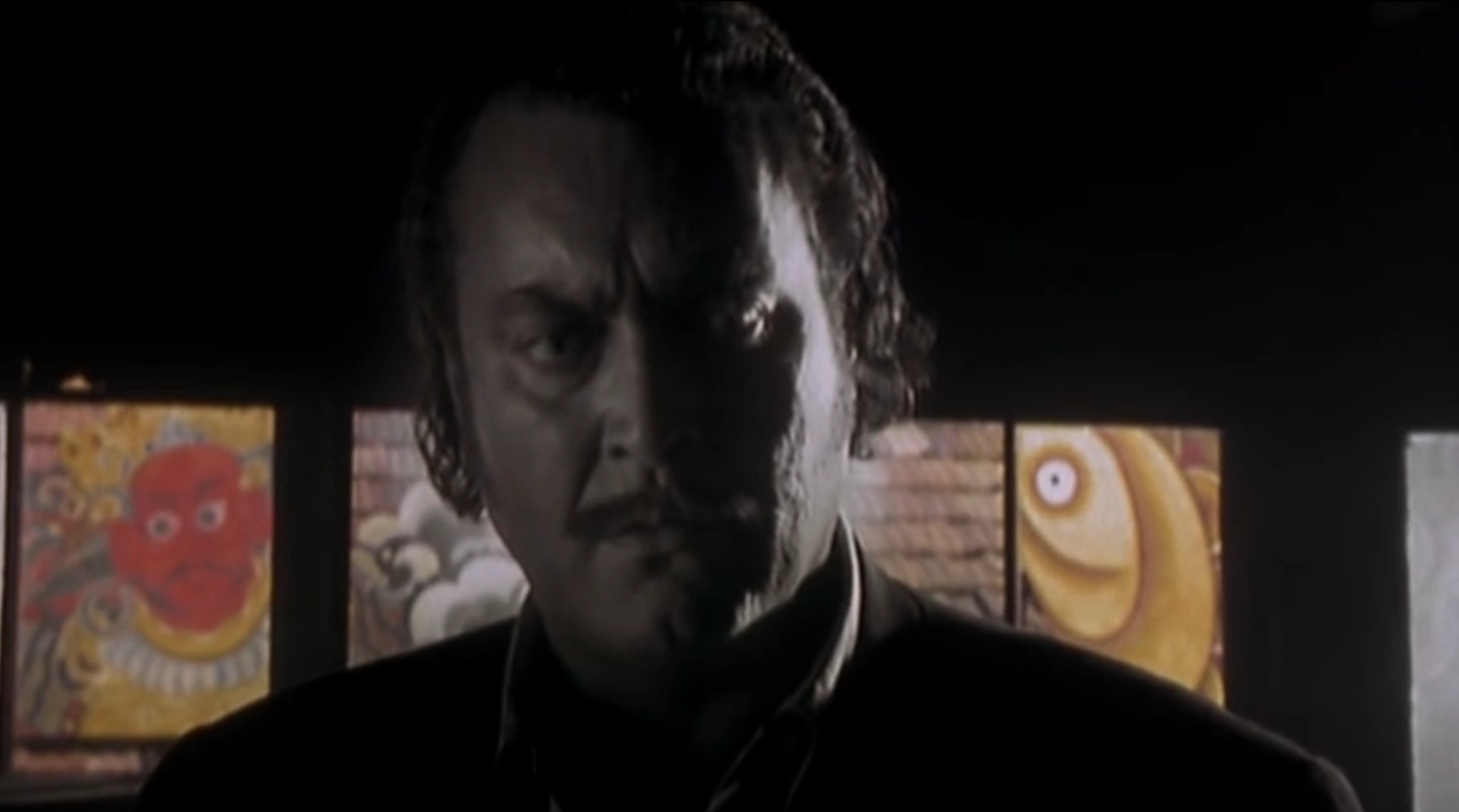
I’m not entirely sure when and where Nirvana is set. Jimi visits places called Marrakesh, Bombay, and even checks into the Chelsea Hotel but seems able to reach these places quickly enough by taxi so perhaps they are all areas in some futuristic metropolis. Jimi’s lack of experience as a fugitive means he immediately draws attention to himself by using his credit card and the Yokosama Corporation send enforcers to hunt him down. Spaced out cyber-terrorist Joystick (Sergio Rubini) finds Jimi first and introduces him to Naima (Stefania Rocco), a hacker considered so dangerous the government wiped her mind and left her with a port in her head where memory chips can be inserted. Essentially she can function as an intermediary between past and present, the living and the dead.
In a place called Bombay City they meet a Swami who helps them find a way into Yokosama’s system and also gives them information about Lisa’s whereabouts. Checking into the Chelsea Hotel, which might well be the famous New York hang-out Leonard Cohen writes about in ‘Chelsea Hotel No.2,’ or Salvatores and co-screenwriters Pino Cacucci and Gloria Corica are using the song’s subject matter about a man reminiscing about a failed love affair as a metaphor for what happened between Jimi and Lisa.
The Yokohama Star’s security system reacts to Jimi’s presence in a similar manner to the planet in Stanislaw Lem’s Solaris adapts to each individual it meets, taking memories and forming scenarios which are essentially wish-fulfilment in an attempt to trap them in their own subconscious. Salvatores uses techniques common in German Expressionism for these sequences so we know from the off kilter visuals none of these encounters are quite what they appear to be.

Salvatores fragmented approach to narrative also makes us question where we are in the story. There are scenes with Jimi plugged into his computer long before they reach their room at the Chelsea Hotel. The ambiguous cliffhanger ending forces us to make our own choice about whether we accept the reality of what we have seen. A closing montage of images rewinds to an earlier point in the film like a player returning to their last save after their avatar meets an untimely end and a close-up hints Jimi may already be a memory. These enigmatic sequences are open to interpretation which is part of the film’s appeal and makes Nirvana an easy film to re-watch. It’s up to the viewer whether they take Jimi’s journey at face value, or see it as part of a game being played by somebody else (film and game have the exact same opening titles), or as with Naked Lunch (91, David Cronenberg) a protagonist retreating from the world into a drug fueled part of his own imagination to help him cope with loss.
As for Lambert he delivers one of his finest performances. Salvatores utilises his strengths as an actor, particularly his air of melancholy and his talent for delivering one-liners honed from years of starring in action movies. My own personal favourite Lambert moment in Nirvana sees Jimi interrupting a touching monologue by having an argument over whether or not he saw a coyote in the desert. It’s a funny and moving sequence, the interruption coming out of nowhere and giving us some insight into the relationship between the two speakers.
That Nirvana hasn’t developed a stronger cult following is a shame. Maybe it’s down to timing. Lambert’s status as an international box-office star was fading in 1997. A couple of years earlier he starred in two cinema releases Mortal Kombat (Paul W.S Anderson) and The Hunted (J.F. Lawton) but by 1997 he was heading for DTV action purgatory helped on his way by the dreadful Adrenalin: Fear the Rush (96, Albert Pyun). Dimension Films, the B-movie wing of Miramax, acquired the rights for Nirvana but couldn’t find a way to market it. A shame as had they done so it might have found an audience. In 1999 the thematically similar Existenz (Cronenberg) and the Wachowski’s The Matrix both found acclaim. I’m fairly certain the film never even came out in the UK. My disk is an R2 from Holland with the English dub and a French language version, but not the original Italian audio. After its cinema release in Italy Nirvana was released on home video as part of an interactive package with a CD-ROM game to be played alongside the movie and I’d love to get a hold of this somehow.
~ MARCH 24, 2016 ~
NEXT WEEK: Mr. Sturton returns with another tale of a creator lost in their creation - a supplemental piece on Soderbergh's Kafka, the director's first collaboration with The Limey screenwriter Lem Dobbs (or as the typo-riddled VHS box calls him "Lem Bobbs.")
One final thing: if any of you, our esteemed readers, have Nirvana's CD-ROM game, shoot us an e-mail - we're highly intrigued!
